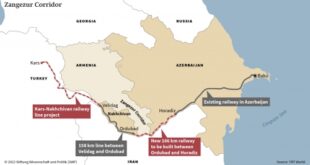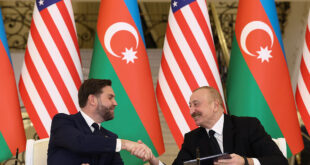 With the wobbly security situation in Iraq and the headache of Iran’s nuclear programme, the last thing the US president needs is another crisis with North Korea.
With the wobbly security situation in Iraq and the headache of Iran’s nuclear programme, the last thing the US president needs is another crisis with North Korea.
 Pyongyang has test-fired at least six missiles in the Sea of Japan, one of them a long-range weapon said to be capable of reaching the US.
 A North Korean foreign ministry official told journalists on Wednesday that the right to test missiles was a matter of national sovereignty.
 “Axis of evil”
 The action by North Korea, which George Bush, the US president, referred to as being part of an “axis of evil” along with Iraq and Iran years ago, was characteristic in its shock value and timing – as Americans celebrated their independence day.
 It comes at a bad time for Washington, which is bogged down in Iraq and busy to build consensus with other countries for a unified approach to Iran’s nuclear programme.
 Tehran, like Pyongyang, describes its nuclear programme as a matter of national sovereignty.
 Critics believe that Bush’s hard-line policies towards Iran and North Korea have spurred both countries to accelerate their nuclear and armament programmes.
 “If those countries didn’t have much incentive or motivation before, they certainly did after the Axis of Evil statement,” says one Western diplomat familiar with the Iranian and North Korean programmes.
 Tactic
 North Korea’s missiles tests are said to be another tactic either to drag Washington to bilateral negotiations or to increase its bargaining position in the stalled six-party negotiations involving the two Koreas, the United States, China, Japan and Russia.
 But Washington’s short-term priority seems to be taking care of “the infant democracy” in Iraq, trying to restore order and ending the chaos that has killed thousands of US soldiers and many thousands more Iraqis.
 Washington also wants to remain focused on Iran, trying to shift the nuclear stand-off to the UN Security Council to ensure that any decision taken against Tehran should be justified under international law.
 However, Washington may yet follow the path it took in Iraq and take military action against Iran independently of the UN, which it dismissed as “irrelevant” when it moved against Saddam Hussein.
 Isolation
 North Korea declared for the first time last year that it possessed nuclear weapons and it repeatedly expresses frustration towards what it calls US hostility.
 Washington, in return, refuses to soften its policy, rejects any “partial” resolution of the nuclear issue, and refuses to agree to one-to-one negotiations with Pyongyang.
 Instead, Washington is pressing China to take a harder line with its communist ally and is threatening its government with more international isolation.
 Washington’s threat, however, seems to matter little in Pyongyang for the simple reason that it is already almost totally isolated.
 Eurasia Press & News
Eurasia Press & News



